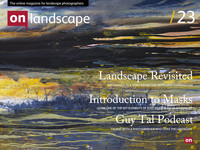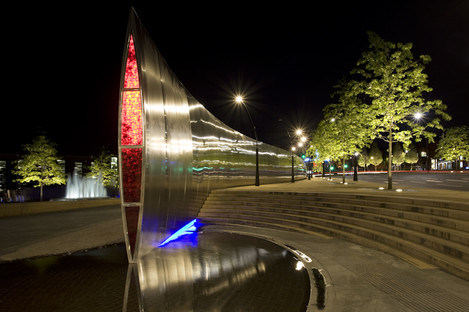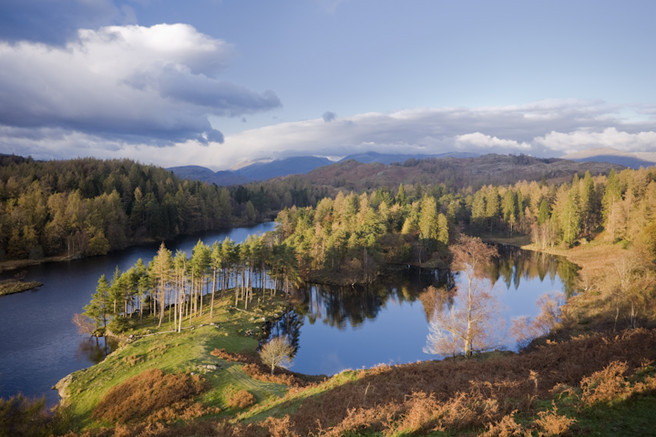The state of Stock and Rights Management

Fran Halsall
Fran Halsall specialises in photographing the UK landscape, particularly the wilder parts of the coastline, moorlands and woodlands, and has a particular passion for creating interpretative images of geological formations.
Have you ever considered placing your images with an image agency? Perhaps you have had work accepted by a library and are waiting for the money to start coming in. Or maybe you have already realised that the financial reward for your hard work, minus commission, comes to little more than a few pounds per photograph. Every photographer has at some stage pondered the advantages of being represented by an image library and many, including myself, have gone down this route as a means of bringing my work to a wider market.
My own experience started six years ago and even in that time there have been rapid changes. Starting with a couple of hundred of shots with one agency, I was pleased to make a few decent sales including three figure sums. Spurred on, I sent work to other libraries and eventually had around 500 images with one company and was happy with the quarterly returns they made. This situation lasted a couple of years before the first contract change, which now meant supplying images exclusively and taking forty, rather than fifty, percent of the sale price. The issue of exclusivity did make me stop and think, however the consistent sales and the fact that they were willing to allow some flexibility over this clause in certain instances outweighed my initial reservations. Naturally I was far less keen about the money split, which prompted me to look around at all the other options and unsurprisingly this revealed that many had already been assimilated into this same library. Grudgingly, I signed up.
For a while it was good, unexpectedly so given the general prices paid for images and the state of the market. However, the library was becoming increasingly choosy, and while sometimes this made sense because they already had an area well represented, at other times they were turning away good images for no obvious reason. Then sales began to decline a little bit more as the financial climate got even gloomier. Moving forward in time another year or so this library was itself bought out by an even bigger fish. The new contract that came with this upheaval had totally unworkable terms that controlled the use of images to an unreasonable extent and for poor returns, and although the image library in question is perfectly within their rights to argue that this is what the market dictates, I ask who created that market? It has become an all out race to see who can offer the most for the least. Needless to say I did not sign on the dotted line and although libraries have only ever brought me a small percentage of total turnover, it was still a painful moment.
The ‘sell them cheap and in quantity' approach to marketing photographs can only ever work from the agencies point of view. While this business model recognises that photography has become a mass produced item in one sense, it ignores the fact that images are not made on a conveyor belt by a machine, they are made by individuals who are expected to produce work for less than the cost of production. With the phenomenal numbers available to license no single image is capable of selling in the quantity necessary to actually constitute an income. Landscape photography takes a great deal of time and resources, and I am left working out how often an image would have to sell before reaching the break even point?
The sad reality of it is that everyone benefits apart from the photographer, the companies that are making millions and the happy customers buying images at knockdown prices. This encourages the idea that photography is in some way cheap and denigrates the hard work that people put in. There has never been a greater demand for imagery but the true value has been tarnished by the sheer quantity to be had through libraries and other means. These days it is not unusual for a potential customer to come to me quoting absurdly low prices as some kind of bargaining tool. It is galling to be undercut by libraries, as I simply cannot compete.
So why do photographers let libraries market their images under such adverse terms? Just as with supermarkets and food producers, big companies use their buying power to get the best deals regardless of a fair price. It is as well to remember that when we feel indignant about this treatment, without our photographs then ultimately they have nothing to sell. Only by saying ‘no thanks’ to unreasonable contracts can the cycle be broken. This is not such a radical position to take if you consider how little you are likely to be walking away from. Just how much money would it take for you to sign away the rights to your work?
Taken at home in Sheffield this is my most frequently sold library image, which after the commission has netted me £191.50. Whether or not you consider this reward enough for three hours work, it needs to be offset against all the images that have made less and that have often been more costly to produce.
This was turned down by one library only to go on to be one of my more profitable photographs. Possibly it was because they already had shots from the area, a situation that occurs all too often now that so many smaller image collections have merged into one.
Personally speaking, I could never sign a contract that prevented me from licensing my images directly to editorial clients. In the case of this photograph, it would have meant losing out as although it has been with a library for about two years it has not sold, meanwhile it has earned £500 in editorial fees.



